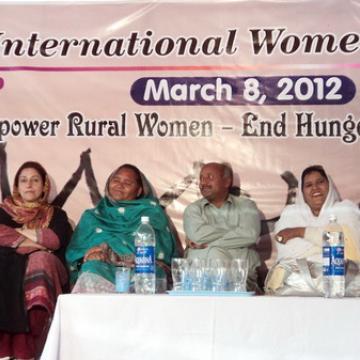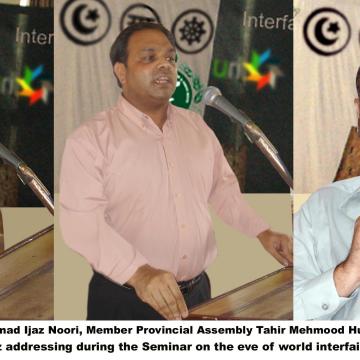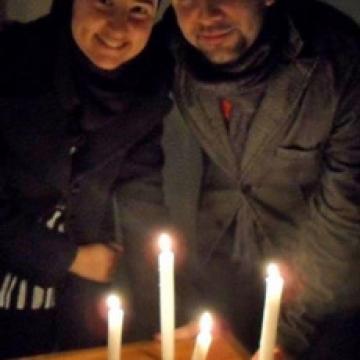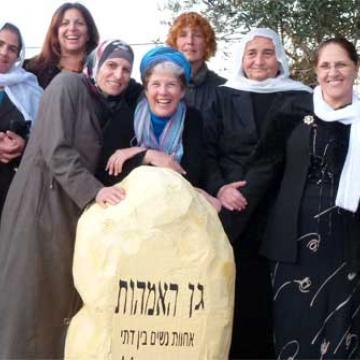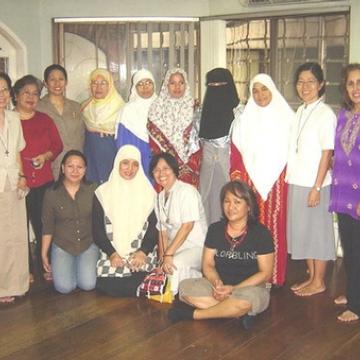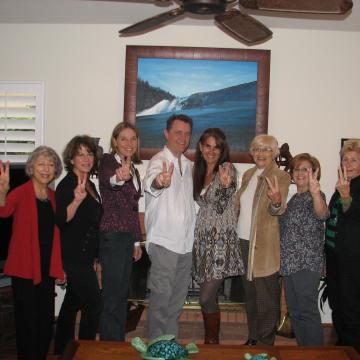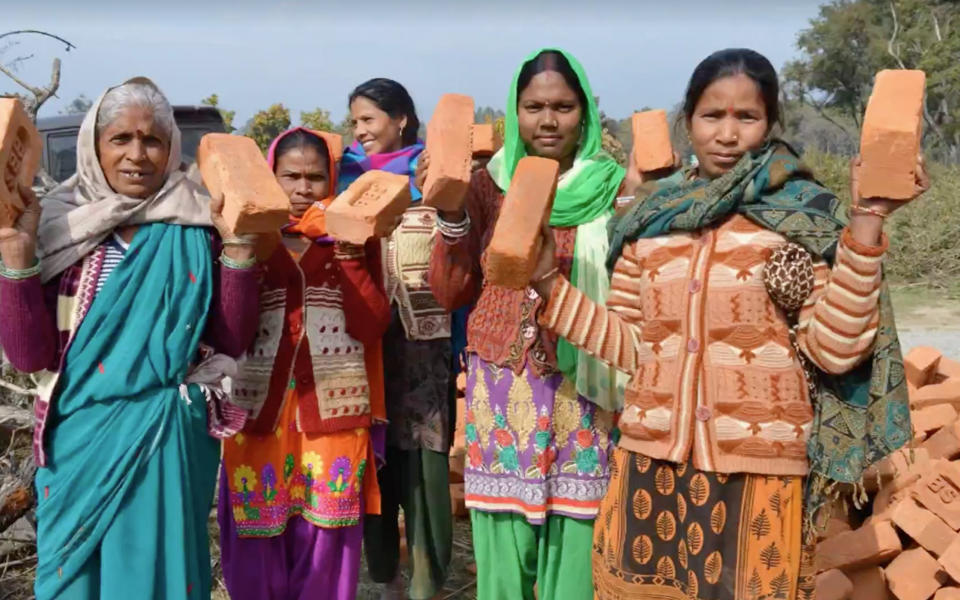
Many Cooperation Circles are devoted to projects for women, which focus on issues like leadership, domestic violence prevention and counseling, job and skills training, gender equality, education, and preventing female infanticide.
Examples of our work in this Action Area:
- TRUST WIN, a URI group based in Jerusalem, brought 30 Christian, Druze, Jewish, and Muslim women together at a therapeutic mineral bath. As they relaxed in the warm water, they discussed each other’s backgrounds free of judgment. “We gave each other water massages, sat and shared fruit and water together, and shed our cares with our clothes,” a participant said. Women spoke the lethal violence just that morning in Jerusalem. “We recognized that we all have friends and loved ones who have died, been wounded, imprisoned in the ongoing conflict.” They offered prayers for peace from their different faiths. For many of the women, it was the first time they had made a friend from a different religion. Not only did they plan future meetings, but they also inspired onlookers. “An ultra-orthodox woman from Bnei Brak said she was impressed and encouraged to see our camaraderie and ease together. She invited us to come to her neighborhood.”
- In Pakistan, Action Against Poverty CC members educate women in remote, rural areas about their rights and give them the resources they need to leave abusive situations.
- In upstate New York, USA, Women Transcending Boundaries held a Women's Iftar meal where five panelists of different religious backgrounds discussed their traditions, leading to interfaith friendships and collaborations as the women realized their similarities.
